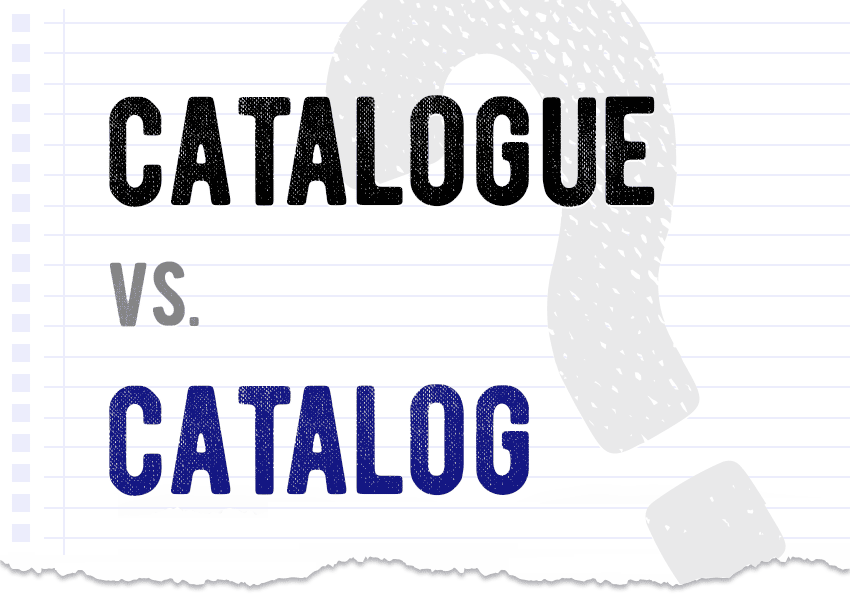Catalogue vs. catalog — which spelling is correct?
They sound the same, they look similarly, they both seem right. Are catalogue and catalog both correct? Do they have the same meaning, or are they fundamentally different? Without further hesitation, let us explain the difference.

Catalog vs. catalogue — do they have something in common?
Indeed, catalog and catalogue have a lot in common. In fact, they are two different variants of the same word meaning “a register”, “an enumeration of all the books, paintings and any other items you can find in a place” or “a book containing that list”. Besides, a catalogue or catalog may refer to “a series of unwanted events”. A verb catalog or catalogue is “to record something, usually as a list”.
Fine, but where comes the difference? Catalog, the most popular spelling in the USA and Jamaica, originated in America in the 19th century, when there emerged a trend to simplify vocabulary. Other English-speaking countries prefer the other version, catalogue. You may notice similar spelling distinction between such words as analogue/analog, labour/labor, dialogue/dialog.
Catalogue and catalog as catalogued in literature
‘It looked like the sort of book described in library catalogues as ‘slightly foxed’, although it would be more honest to admit that it looked as though it had been badgered, wolved and possibly beared as well’.
Terry Pratchett, The Light Fantastic, 1986
‘Love as Agape, Eros and Philos; love as infatuation, obsession and lust; love as torture, euphoria, ecstasy and oblivion (this is beginning to read like a Calvin Klein perfume catalogue); love as need, passion and desire.’
Stephen Fry, Moab Is My Washpot, 1997
‘Those unable to catalog the past are doomed to repeat it’.
Lemony Snicket, The End, 2006
Catalog or catalogue — which one should you choose?
First, bear in mind your audience. If you write for an American reader, use the catalog option; catalogue will look better in the eyes of other English speakers. More importantly, be consistent — if you decide on American English, don’t jump across the ocean every second sentence: stay faithful to one choice. Finally, in case of any doubts, refer to Correctme.org/.


